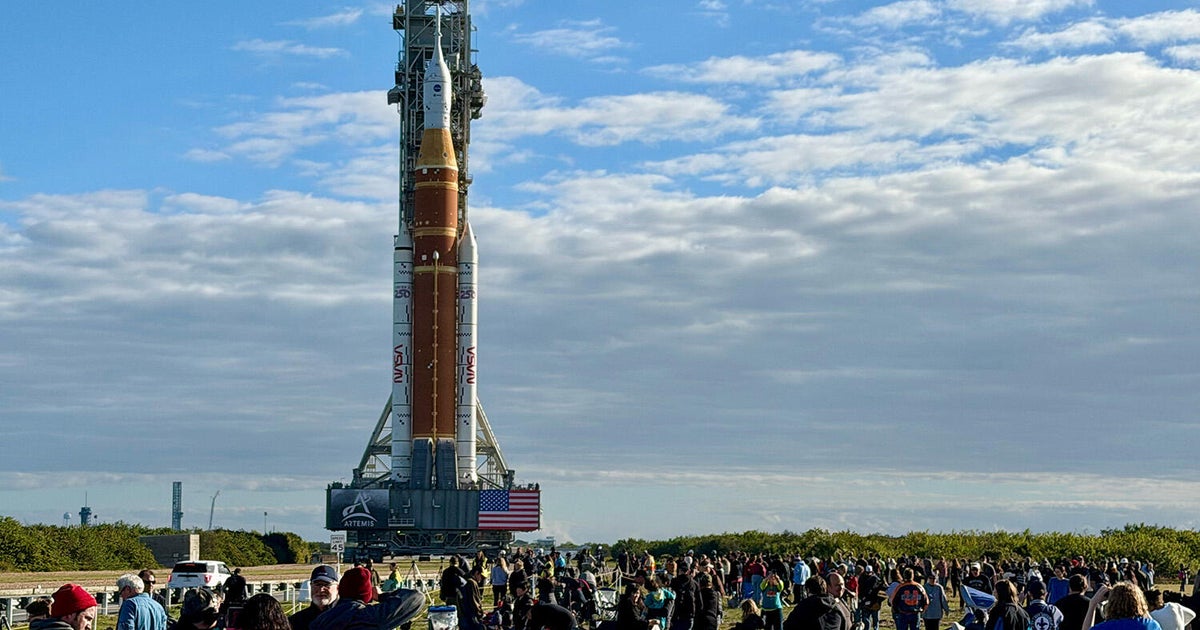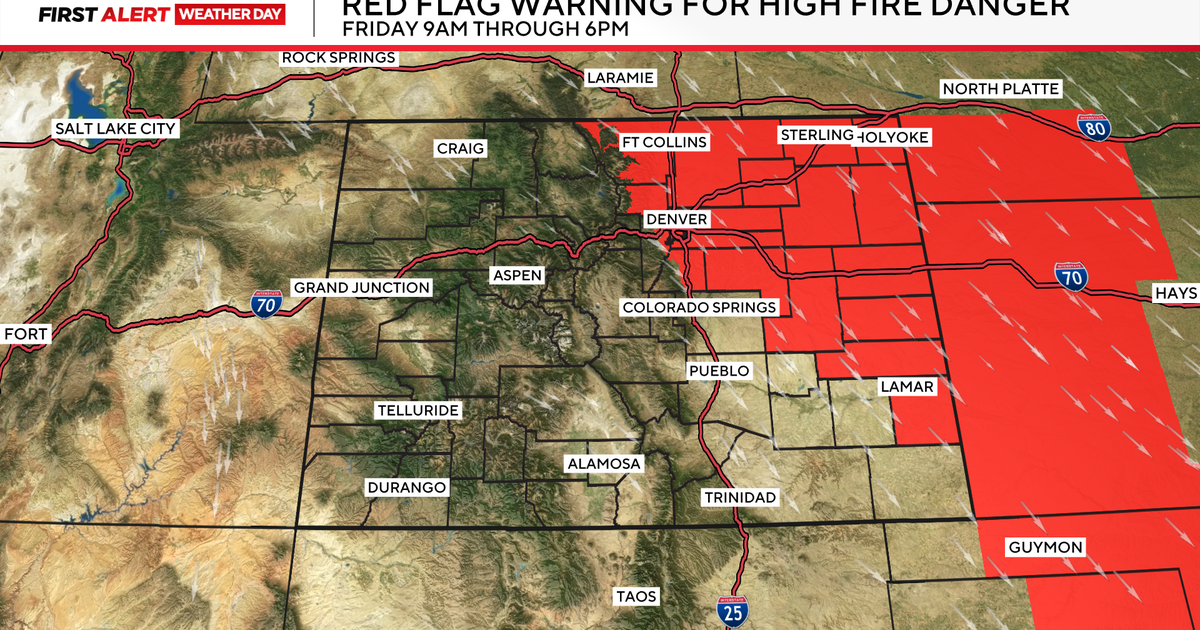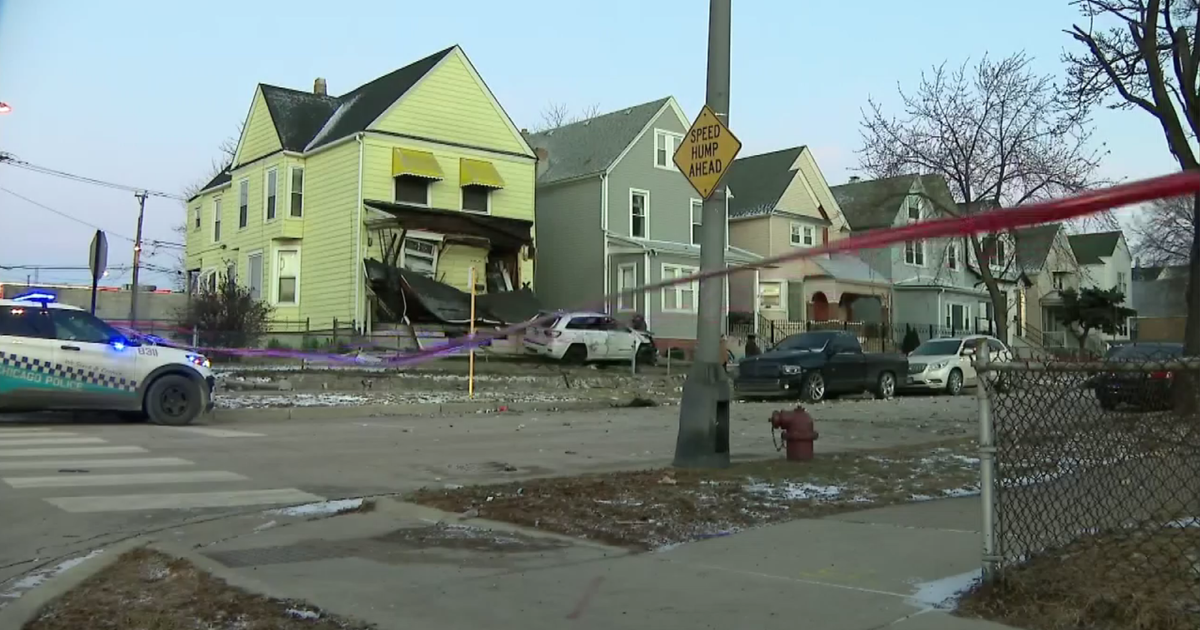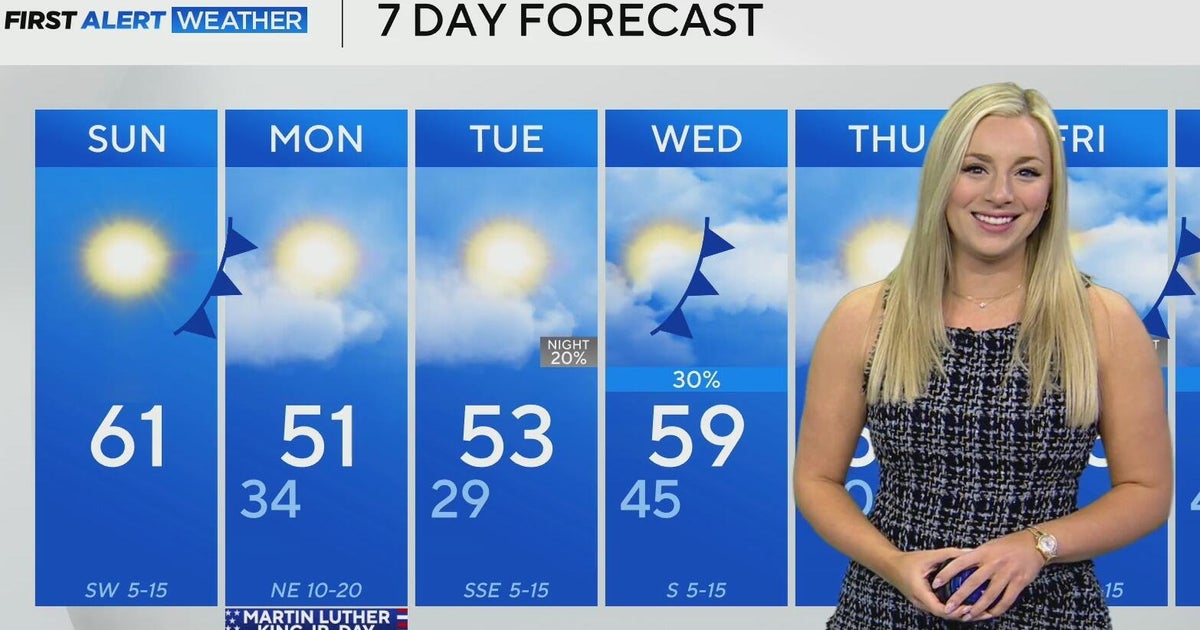Hundreds Injured By Blasts As Meteor Falls In Russia
MOSCOW (CBSNewYork/AP) -- A meteor streaked across the sky and exploded over Russia's Ural Mountains with the power of an atomic bomb Friday, its sonic blasts shattering countless windows and injuring nearly 1,000 people.
The meteor -- estimated to be about 10 tons -- entered the Earth's atmosphere at a hypersonic speed of at least 33,000 mph and shattered into pieces about 18-32 miles above the ground, the Russian Academy of Sciences said in a statement.
"We're talking about a sensational object," Michio Kaku, a physics professor at the City University of New York, told "CBS This Morning." "This was huge, about the size of a house."
Amateur videos posted to YouTube showed a bright streaks of light crossing the morning sky. In some videos, a large boom was heard -- possibly an impact or possibly a sonic boom of the meteor sailing through the Earth's atmosphere at more than the speed of sound.
"The object came in, blew up 20 miles above ground, it was building of hot gases inside and it exploded just like what happened in Siberia back in 1908," Kaku said. "An even bigger one hit Siberia back then."
The explosions broke more than 1 million square feet of glass, city officials said.
The Interior Ministry said 985 people sought medical care after the shock wave and 44 of them were hospitalized. Most of the injuries were caused by flying glass, it said.
"There was panic. People had no idea what was happening. Everyone was going around to people's houses to check if they were OK,'' said Sergey Hametov, a resident of Chelyabinsk, about 930 miles east of Moscow.
"We saw a big burst of light then went outside to see what it was and we heard a really loud thundering sound,'' he told The Associated Press by telephone.
Another Chelyabinsk resident, Valya Kazakov, said some elderly women in his neighborhood started crying out that the world was ending.
City officials said 3,000 buildings in the city were damaged by the shock wave, including a zinc factory where part of the roof collapsed.
Some fragments fell in a reservoir outside the town of Cherbakul, the regional governor's office said, according to the ITAR-Tass news agency.
A 20-foot-wide crater was found in the same area, which could come from space fragments striking the ground, the news agency cited military spokesman Yaroslavl Roshchupkin as saying.
Meteors typically cause sizeable sonic booms when they enter the atmosphere because they are traveling much faster than the speed of sound. Injuries on the scale reported Friday, however, are extraordinarily rare.
Donald Yeomans, manager of U.S. Near Earth Object Program in California, said he thought the event was probably "an exploding fireball event.''
"If the reports of ground damage can be verified, it might suggest an object whose original size was several meters in extent before entering the atmosphere, fragmenting and exploding due to the unequal pressure on the leading side vs. the trailing side (it pancaked and exploded)," Yeoman said in an email to The Associated Press.
In New York, many expressed concerns about something like the Russian meteor hitting New York City.
"You have to kind of, almost in a sense, block it out," one man said. "Because if you start getting bogged down by it, it's terrifying."
"As humanity, you have to consider how much of a stake do we really have here," said another. "And we may not have much in the scheme of things."
But Kaku said events like these are fairly rare.
"I think it's good to look up. Most people never look up, we spend most of our time with our heads down," he said. "But these things happen once every few decades to centuries."
The meteor hit hours before the 150-foot asteroid 2012 DA14 made the closest known flyby for a rock of its size, passing within 17,000 miles of Earth. That's closer than some satellites.
"It caught us totally off guard. We weren't expecting this," Kaku said.
As asteroids go, DA14 is a shrimp. The one that wiped out the dinosaurs 65 million years ago was 6 miles across.
Asteroid To Buzz Earth, Miss By 17,150 Miles
The asteroid was invisible to astronomers in the United States at the time of its closest approach on the opposite side of the world. But in Australia, astronomers used binoculars and telescopes to watch the point of light speed across the clear night sky.
The European Space Agency, in a post on its Twitter account, said its experts had determined there was no connection between DA14 and the Russian meteor.
Small pieces of space debris -- usually parts of comets or asteroids -- that are on a collision course with the Earth are called meteoroids. When meteoroids enter the Earth's atmosphere they are called meteors.
Most meteors burn up in the atmosphere, but if they survive the frictional heating and strike the surface of the Earth they are called meteorites.
The dramatic events prompted an array of reactions from prominent Russian political figures.
Vladimir Zhirinovsky, the nationalist leader noted for vehement statements, said "It's not meteors falling, it's the test of a new weapon by the Americans,'' the RIA Novosti news agency reported.
"Chelyabinsk is special -- that's the nuclear weapons site of the old Soviet Union," Kaku said. "They've had a number of contaminations there and some Russians are saying 'Maybe it's an American weapon that they're testing over our nuclear sites.' So the internet is buzzing -- this is sensational in Russia."
Deputy Prime Minister Dmitry Rogozin said the incident showed the need for leading world powers to develop a system to intercept objects falling from space.
"At the moment, neither we nor the Americans have such technologies'' to shoot down meteors or asteroids, he said, according to the Interfax news agency.
Please share your thoughts below...
(TM and © Copyright 2013 CBS Radio Inc. and its relevant subsidiaries. CBS RADIO and EYE Logo TM and Copyright 2013 CBS Broadcasting Inc. Used under license. All Rights Reserved. This material may not be published, broadcast, rewritten, or redistributed. The Associated Press contributed to this report.)







